Here are stories that you could read in one bite, but the taste they leave in your mouth will last forever. Find here some unforgettable short stories written by Neil D’Silva on different themes, ranging from the highly optimistic to the very dark.
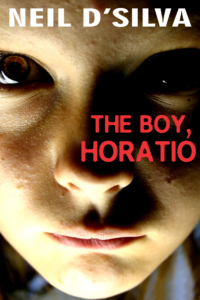
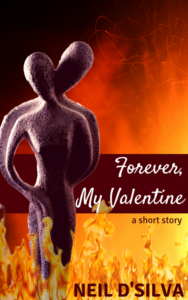
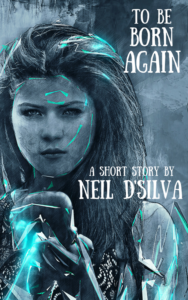
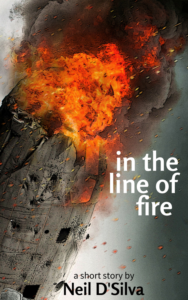
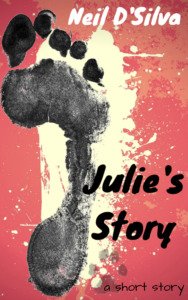
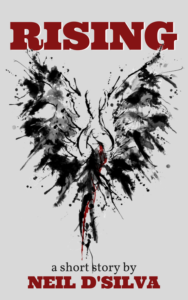
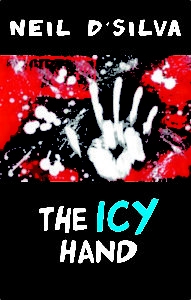
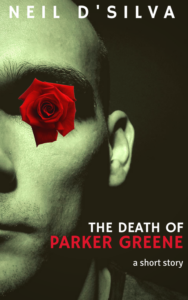
Here are stories that you could read in one bite, but the taste they leave in your mouth will last forever. Find here some unforgettable short stories written by Neil D’Silva on different themes, ranging from the highly optimistic to the very dark.








Jean Spraker is an American expat living in Seoul. But, some say her soul is truly Indian. She is currently writing her first novel inspired by her life in India. She blogs at jeanspraker.com.
This guest post from Jean Spraker is a part of the Review Ramblings series.
When Neil approached me to guest blog about writing reviews, I said, “Sure! I’d be happy to do it!” I had recently written a review for Ravi Subramanian’s The Bestseller She Wrote that’s received high praise—even from Subramanian himself. That makes me an expert now, right?
That about sums it up, don’t you think?
About 30 seconds after I agreed to write this post, I thought, “Ah crap! How DO I write a review? What makes my reviews work? Why was the response so positive for this review? What makes it different? What tips can I give potential reviewers? Have I completely lost my mind agreeing to a guest blog two days before #NaNoWriMo? Why do I think so damn much?”
Whew!
Clearly, my head is a dangerous place. Someone should really post a sign.
The truth is that I don’t have a secret sauce for reviews. If I did, I’d bottle it and sell it. A writer has to earn a living somehow. Clearly, royalties aren’t the pot of gold at the end of the writing (or reading) rainbow.
So, what tips can I offer?
It sounds simple, but it isn’t. Too often, I see readers taking a snobbish approach to the books they review. Judging the author for every typo and plot hole. Look. I’m not saying we shouldn’t judge those things. Typos on every page and plot holes the size of Maharashtra or Minnesota annoy readers. Reviewers should assess those issues. But, do it with respect. I get it. Everyone plays armchair quarterback. “I could have written Half Girlfriend or Fifty Shades. That book sucked,” you say. But, you know what? You didn’t write either book. That book is someone’s baby just like that half-finished manuscript you’ve been working on for the last year and a half is yours. Would you kill someone else’s baby? No. Of course not. So, why are you wasting my time writing the most intensely evil and useless review of a book you hate? I spotted your hater tendencies in the second sentence and moved on. I wrote you off. And so should the readers and the author, quite frankly. I have only written a 1 star review once, for a book that I was given as a review copy. It was bad, and I felt obligated to review it honestly. Otherwise, I would not have made it past page 10. But, truthfully, these bad reviews often serve little purpose to the reader. There’s always someone to disagree.
On the flip side of the hater review, we have the lover review. The person who has nothing but rainbows and stardust to blow up the writer’s butt. That person who is either related to or connected directly to the writer. Or who just loves every book, no matter how bloody awful. Even the best books have flaws. Take Midnight’s Children. The Booker of Bookers. A book so good that it won a Booker twice! Once by popular vote. Seriously. If you haven’t read it, you should. It will change your life and challenge everything you thought you knew that you didn’t actually know until you knew it.
But, even Midnight’s Children has flaws. Maybe you thought the mango pickle factory setting was cliché. Maybe you didn’t get that whole weird shower story. Maybe you just don’t like how Rushdie punctuated the book. Whatever it is, that criticism should be there, too. Not just the praise. Not just the “You’re so totally awesome!” Always give at least one positive and one negative aspect to the book. My reviews are structured with the good, the bad, and the verdict sections to maintain that balance.
If you are reviewing a thriller or mystery, please, for the love of God, don’t tell us who did it or what happens in the end. Yes, I know this might make your review vague, but the readers will thank you for not ruining the book—and so will the writer. Trust me.
I was so heavily involved in the final stages of Ketan Bhagat’s Child/God that I am in the acknowledgements. I am constitutionally incapable of speaking even one negative thing about the book publicly. Which is why when I reviewed the book, I admitted that and instead gave you a straight-up sales pitch. I recently saw the editor for a book review said book on his blog. No mention was made of his role in the book. And, to me, that’s wrong. As long as he’s up front about it, his review holds water. But, the minute you find out he helped shape the book, but didn’t tell you, his opinion holds less value, doesn’t it?
Say you’re a blogger, and someone asks you to review a romance novel. No really. Say it. “I’m a blogger and someone asked me to review a romance novel. Are they nuts! I don’t read romance!” you bellow. That’s a problem. Are you going to do the book or yourself justice? Probably not. This is the best time to refer the person to another blogger in line with their interests.
I learned this trick in grad school. As part of my coursework and prep for my prelims, I regularly wrote book reviews. I always had to place the book within its historiographic context. Always. If the writer was a Marxist, that was contextualized within a discussion about class. Sometimes context is simple. Maybe it’s saying that Ravi Subramanian normally writes thrillers. Maybe it’s explaining the marketing mayhem around Half Girlfriend. Relating a book to other books can really help the reader understand if he or she would enjoy the book.
Entertain. Educate. Enlighten.
I learned more about writing for an audience in those three words than I have learned in seven years as a tech editor sitting in branding meetings. Sanghi is absolutely right. Keeping your audience entertained is the key to success. Let’s face it. Attention spans are shrinking, but book inventories are expanding. If you want to capture an audience, you must entertain. Sorry. Your review has to be more entertaining than Candy Crush. Truth hurts. I know.
When possible, I try to bring in multimedia. As a former Creative Services Manager, I know how important it is to connect to users on multiple levels. Sometimes, that’s as simple as bringing in the Scion of Ikshvaku’s book trailer; sometimes it’s bringing in tweets or completely unrelated YouTube videos.
Multimedia is Awesome! Isn’t it? You get the idea. If you have a blog, you should be able to figure out how to copy and paste the YouTube embed code into your site. WordPress has made this easier with the Add Media button. Just copy and paste the YouTube link, and presto! Video!
It’s OK. Really. Pay attention to the buzz around the book. Follow the author on Twitter or Facebook. See what he or she says about the upcoming release. Use that in the review to give the reader a better sense for the flavor of the book. It’s OK to go gaga over a book as long as you balance that with real criticism and don’t lose sight of the fact that your review is meant to help a reader decide whether to buy the book. Or not.
Proof those reviews, people! Run spell check, damn it! A poorly written 5 star review could do more damage than a well written 1 star review. No joke. No matter how insightful your commentary, if your review contains tons of typos, no one will pay attention to it. Not the potential reader and certainly not the author. I recently admitted on Facebook that I don’t read Amazon reviews. Poor writing is the biggest reason why.
Now that you know how to write a great review, you can do the minion dance! Gangnam style! So long from Seoul!

A lot has been written on the use of pedestrian language that makes for languid prose and therefore a badly-written book, which leaves a sour taste in the mouth.
In this post, let’s talk about the opposite of pedestrian prose – PURPLE PROSE.
In lay language, purple prose means stringing a litany of BIG words together to form convoluted sentences, thus creating flowery prose (yeah, you can say I have a language fetish. It is the aspect of writing that I’m most concerned about).
Reading a book with flowery prose is different than reading one with pedestrian language. Reading a novel crammed with purple prose is like bumping into someone who has sprayed too much perfume. The pungent aroma smothers the nostrils and makes it difficult to breathe, doesn’t it?
Big words and unnecessarily twisted sentences lessen the overall reading experience. Personally speaking, it puts me off reading the book.
The saddest part is that I’m reading a book with an AWESOME story but written in flowery prose. The presence of too many words to describe too little is hampering my reading experience, despite the fact that I really like the characters, the setting, and the plot.
New writers, in my experience, often tend to forget that it is not using big words in stories that makes a good writer. It is using simple words and lucid language to say a lot that makes a good writer. And, no, literary authors, at least the ones I’ve read, don’t use flowery prose or complicated language (except Cervantes, perhaps).
Gabriel Garcia Marquez, one of the literary giants, uses simple, lucid language in his novels, sometimes peppered with Spanish cusswords. And yet, his prose is lyrically beautiful and enchanting!
Toni Morrison, VS Naipaul, Richard Flanagan, and John Steinbeck use normal, everyday language too, but in a way that tells a touching, poignant story, both through the text and its subtext. And their prose is excellent and of high quality.
A good writer, I believe, can strike a balance between using simple BUT quality words, and incorporate a style and voice that speaks straight and is honest, but still connects and impresses. The language should not become pedestrian instead of simple, and at the same time, it should not become irritatingly complex instead of having quality.
When reading a novel, I expect to read a story — about characters, about their thoughts, actions, and feelings, and about what happens during the story. I do NOT expect to have big words thrown at me. That makes the writer seem condescending, like they think they can awe the reader by their complex word-building, and prove that they ‘know’ so many complicated words.
If a character has to use the loo, it should be ‘I have to pee / use the washroom’, and not ‘I have to evacuate my bladder / perform micturition’. The latter sounds laughable, doesn’t it?
My point is, we writers must cultivate the talent to convey complicated things in simple, lucid language, while still maintaining the quality of the prose. This fine balance can be struck only if we practice our craft properly.
Prachi Percy Sharma is an upcoming name in the world of Indian and global literature. She is known for her strong opinions on feminism, and is quite vocal about the things that blight our contemporary society. All of these shape her writing, which is mostly in the genre of crime fiction. Visit her site at Crimocopaeia and read her short stories at the links below:
Though I have always been writing since my adolescence, and winning awards for it too, I took up fiction writing only very recently. One year ago, to be precise. I came up with a website, posted about a dozen short stories, did the usual stuff of putting up stories on Wattpad and Figment, and then debuted with Maya’s New Husband. The reviews I received along the journey egged me on to keep writing, and now there’s definitely no looking back.
This rainy morning, I like recording why I took up writing in the first place. Why writing? Why the change of tracks from teaching? Here are ten inferences I made.
By Summerita Rhayne, author of Against All Rules and other books
Thanks for hosting me on your blog, Neil. Today I’m sharing three ways in which writing can be made to have more impact and vibrancy.
This post was inspired by a question asked in the FWBA (For Writers, By Authors) group on Faebook about how to make the writing more visual. There are innumerable pointers for doing that but I’m going to be brief here and share what I think is important.
It’s common these days to hear advice about taking out adverbs and adjectives and many of the adjuncts to make the writing crisp and direct. I don’t agree with that entirely. That’s because when we read we don’t just want to know Y happened after X and before Z. If all we have is the dialogues and the action, it would seem as though we are reading a film script. A book comprises much more. It allows us to give wings to our imagination and visualize according to our understanding.
At the same time, it is also true that we no longer have the luxury of leisure and even in our reading we want to get to the story as fast as possible.
Here are three pointers which I feel can enhance your writing while keeping it from getting weighty, descriptive or ponderous.
This is what I’m increasingly doing now in my writing and I’ve found it works great in maintaining reader interest. Instead of using elaborate phrases and descriptions, keep your writing really simple and just describe what is happening. Think of it like a movie scene unfolding before you. I know it sounds contradictory to what I said before but really it isn’t. Let me explain. Those scenes in a movie in which you get close ups – they are the cue for us to write the emotional reaction of the character. Here’s where you can show your writing skills and have the reader tune into your character’s experience real up close. This will serve the purpose of internalization or giving emotional depth to your character and their conflict. Stick to bare description elsewhere. That keeps your focus on your plot. I also find that once I begin to describe simply what is occurring, the words find cadence more naturally.
Metaphors are a lovely way to enhance your writing. A beautiful way to use metaphors is to filter them through your character’s experience. For example: your character who is a teacher in small school might describe an irritation like the sound of chalk squeaking across the blackboard. Whereas, if your character is a racing driver, it would be more appropriate for them to feel it like the squealing of tires on sudden braking. Think of creative ways in which you can add interesting comparisons.
Dialogue gives pace to your writing. We read more quickly and visualize better if the characters are deep in conversation. A tip is to use 40% narration: 60% dialogue. This is what editors are looking for these days from what I hear.
Hope you found this post useful. Do you agree writing should be simple and not too descriptive? Do you agree with other pointers in this post? Do share what you like to do to make your writing more striking.
About the author:
Summerita Rhayne is a romance author who has written in historical and contemporary genres. She loves to explore emotional conflicts in her stories.
You can find out her books here, and read more about her on her website. Follow her on Twitter here.
By Rabbi Galina Trefil (author of The Incomplete Ones: A Tale of Slavery)
In the Gulf of Cambay, in a now-underwater city, a slab was brought up by archaeologists. It had what appeared to be possible inscriptions so ancient that they might date back to the last Ice Age.
I was recently at a writing seminar where a popular author shared his tips for churning out nail-biting thrillers. I was happy to note that most of the things he said were in accordance with my own ideas, and which I have already followed in my book Maya’s New Husband. Now, people who know me will corroborate with this — if I stumble upon something interesting, I want to share it with others. In this case, I decided to share these writing tricks, tips or whatever you might want to call it, with my fellow authors and aspiring writers.